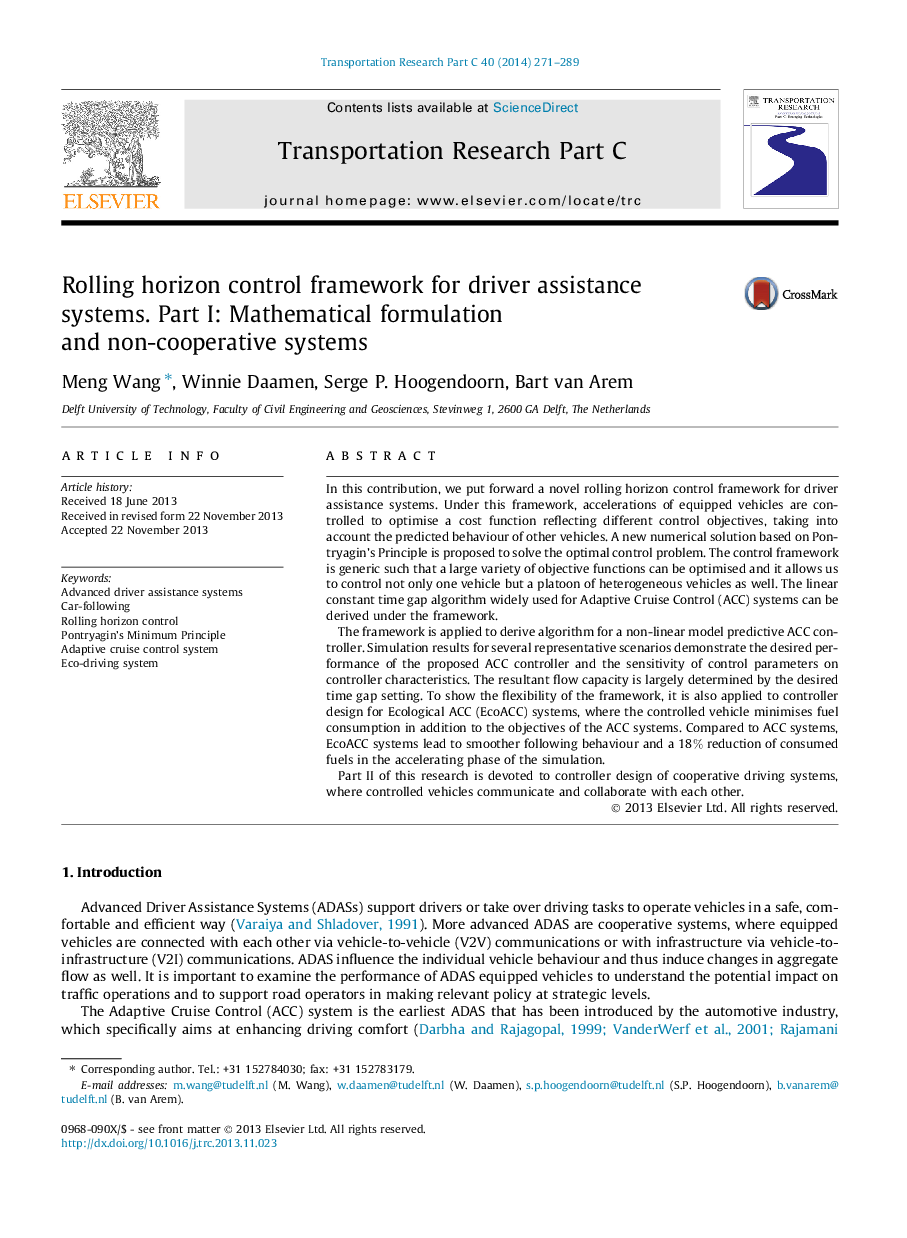| کد مقاله | کد نشریه | سال انتشار | مقاله انگلیسی | نسخه تمام متن |
|---|---|---|---|---|
| 525282 | 868904 | 2014 | 19 صفحه PDF | دانلود رایگان |
• A generic rolling horizon control framework for advanced driver assistance systems.
• A fast numerical solution approach based on Pontryagin’s Principle.
• A novel model predictive controller for adaptive cruise control systems.
• A new ecological adaptive cruise control system under eco-driving strategies.
In this contribution, we put forward a novel rolling horizon control framework for driver assistance systems. Under this framework, accelerations of equipped vehicles are controlled to optimise a cost function reflecting different control objectives, taking into account the predicted behaviour of other vehicles. A new numerical solution based on Pontryagin’s Principle is proposed to solve the optimal control problem. The control framework is generic such that a large variety of objective functions can be optimised and it allows us to control not only one vehicle but a platoon of heterogeneous vehicles as well. The linear constant time gap algorithm widely used for Adaptive Cruise Control (ACC) systems can be derived under the framework.The framework is applied to derive algorithm for a non-linear model predictive ACC controller. Simulation results for several representative scenarios demonstrate the desired performance of the proposed ACC controller and the sensitivity of control parameters on controller characteristics. The resultant flow capacity is largely determined by the desired time gap setting. To show the flexibility of the framework, it is also applied to controller design for Ecological ACC (EcoACC) systems, where the controlled vehicle minimises fuel consumption in addition to the objectives of the ACC systems. Compared to ACC systems, EcoACC systems lead to smoother following behaviour and a 18%18% reduction of consumed fuels in the accelerating phase of the simulation.Part II of this research is devoted to controller design of cooperative driving systems, where controlled vehicles communicate and collaborate with each other.
Journal: Transportation Research Part C: Emerging Technologies - Volume 40, March 2014, Pages 271–289
